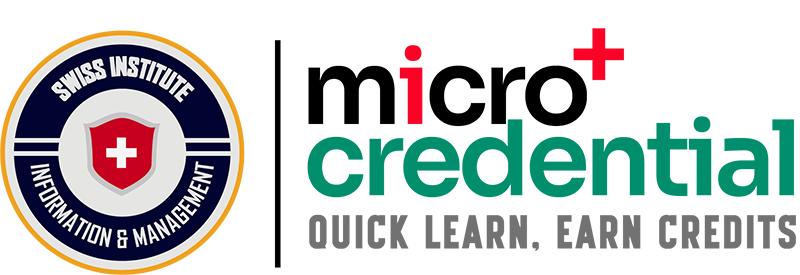Level 4 Award
in Logistics and the Business Environment
Level 4 Award could transfer 20 credits and full tuition fees to Level 4 Diploma programs of SIMI Swiss.

Level 4 Award in Logistics and the Business Environment
The aim of this award is to provide learners with the underpinning knowledge to recognise the components and construct of the logistics sector and examine the fundamental factors which influence how a logistics business operates within the context of its internal and external business environment.
Could transfer 20 credits and full tuition fee to the Level 4 Diploma in Logistics and Chain Supply Management of SIMI Swiss.
Learning Outcomes:
1. Understand the business of logistics.
-
1.1 Explain different categories of business logistics.
-
1.2 Explain the major elements of logistics.
-
1.3 Discuss how logistics affect a supply chain.
2. Understand the relationships between different logistic functions.
-
2.1 Explain the purpose of different functions of a logistics business.
-
2.2 Explain the relationship between the different functions of a logistics business.
-
2.3 Compare different ways a logistics business could be structured.
-
2.4 Discuss how functional relationships impact how a logistic business is structured.
3. Be able to measure a logistic business’s internal environment.
-
3.1 Explain what is meant by the term ‘internal environment of a logistics business.’
-
3.2 Explain why it is important to measure a logistic business’s internal environment.
-
3.3 Apply a technique to quantify a logistic business’s internal environment.
-
3.4 Assess a logistics business’s internal environment.
4. Be able to measure a logistic business’s external environment.
-
4.1 Explain what is meant by the term “external environment of a logistics business.”
-
4.2 Explain why it is important to measure a logistics business’s external environment.
-
4.3 Assess a logistics business’s external environment.
-
4.4 Apply a technique to quantify a logistics business’s external environment.
Topics:
Understand the business of logistics.
Course Coverage
-
Inbound Logistics, Outbound Logistics, Reverse Logistics, Distribution Logistics, and After-sales Logistics.
-
Transportation, Inventory Management, Warehousing, Material Handling, Packaging, Information Systems.
-
Smooth flow of goods, Just-in-time inventory management, Enhanced supply chain visibility and coordination, Meeting customer expectations, Cost savings, and Negative impacts of poor logistics management.
Understand the relationships between different logistic functions
Course Coverage
-
Procurement, Transportation, Inventory Management, Warehousing, Packaging, Distribution, Customer Service.
-
Procurement and Inventory Management, Transportation and Warehousing, Inventory Management and Distribution, Packaging and Transportation, Customer Service and Distribution.
-
Centralised Structure, Decentralised Structure, Hybrid Structure, Matrix Structure.
-
Impact on Centralised or Decentralised Structure, Influence on Hybrid or Matrix Structure adoption, Consideration of Interdependencies and Collaboration, Alignment with Strategic Objectives and External Factors.
Be able to measure a logistic business’s internal environment.
Course Coverage
-
Internal factors, functions and stakeholders
-
Organisational culture
-
Establishing business capabilities
-
Supporting strategic intent
-
Planning for the future
-
Capacity assessment grid
-
McKinsey’s 7S framework
-
VRIO: identify the resources and capabilities that give a sustainable competitive advantage: Value, Rarity, Imitability (Ease/Difficulty to Imitate), Organization (ability to exploit the resource or capability)
-
SWOT: Strengths, Weaknesses, Opportunities, and Threats
-
Value chain analysis
Be able to measure a logistic business’s external environment.
Course Coverage
-
External factors, drivers and stakeholders
-
Local, national and international cultures
-
Establishing market position
-
Recognising opportunities
-
Preparing for change
-
PESTLE: political, economic, social, technological, environmental, legal.
-
Scenario analysis
-
Competitor analysis
-
Porter’s 5 Forces analysis: the threat of substitute products, power of customers, power of suppliers, and industry rivalry, which determines the competitive intensity and attractiveness of a market
-
Sector/industry analysis
-
Ansoff matrix: product/market expansion grid is a tool used by firms to analyse and plan their strategies for growth.
Indicative reading list
-
Needle, D. and Burns, J. (2019) Business in Context: An Introduction to Business and its Environment 7th edition, Cengage, London.
-
Rudd, J. (2018) A Practical Guide to Logistics Kogan Page, London.
Additional Resources
-
International Journal of Business Environment
-
Chartered Institute of Logistics and Transport
-
Management Help
Entry requirements
- Learners must be over 18 years old.
- Relevant Level 3 Diploma or equivalent qualification
- Or GCE Advanced level in 2 subjects or equivalent qualification.
English requirements
If a learner is not from a predominantly English-speaking country, proof of English language proficiency must be provided.
- Common European Framework of Reference (CEFR) level B2 or equivalent
- Or A minimum TOEFL score of 101 or IELTS 5.5; Reading and Writing must be at 5.5 or equivalent
- Or A minimum Pearson Test of English Academic (PTE Academic) score of 51 or equivalent
The SIMI Swiss reserves the highest decision-making power for admission whether to accept or not accept after a specific review of each candidate’s profile to ensure that they can comprehend and gain benefits when participating. For the fake university or diploma mills, University Partners shall not be accepted.
After graduating with Level 4 Award, students receive all certified documents from the SIMI Swiss.
Certified Documents:
- e-Certificate from the Swiss Information and Management Institute (SIMI Swiss).
- Hard copy certificate from the Swiss Information and Management Institute (SIMI Swiss) – Optional.
Because the program is accredited and recognized, students can easily use certified in the working environment and have many opportunities for career advancement. In addition, in case if you want to study for a SIMI degree or university partner degree, students can convert all credits and the full paid tuition fee.
The SIMI Swiss’ Level 4 Award means:
SIMI Swiss Level 4 Award is a qualification at the undergraduate level and is equivalent to the following:
- Level 4 Certificate of the Regulated Qualification Framework (RQF) in the UK
- Level 7 Certificate of the Scottish Credit and Qualifications Framework (SCQF)
- Level 4 Certificate of the Credit and Qualifications Framework for Wales (CQFW)
- Level 4 Certificate of the European Qualifications Framework (EQF)
- Level 5 Certificate of the Australian Qualifications Framework (AQF)
- Level 4 Certificate of the ASEAN Qualifications Reference Framework (AQRF)
- Level 5 Certificate of the African Continental Qualifications Framework (ACQF)
Students can convert all credits and the full tuition fee when participating in the SIMI Swiss and/or University Partners academic programs if they want to study for an academic degree.
Credits transfer:
Learners can accumulate 20 credits from the Level 4 Award program when participating in the Level 4 Diploma program. Please see the credit transfer policy HERE.
Tuition fee transfer:
When participating in the Level 4 Diploma program, students who have graduated 1 Level 4 Award will receive a discount of full tuition fee which you paid. Please see the tuition fee transfer HERE.
The SIMI Swiss micro-credential program allows for the transfer of credits and tuition fees into full degree programs from SIMI Swiss and/or its university partners. SIMI Swiss reserves the right to limit admissions once the number of students exceeds the quotas.
Apply Policy:
- To participate in the SIMI Swiss micro-credential program, students need to meet the entry criteria corresponding to each level. Please see the “Entry” tab for more details.
- SIMI Swiss will not accept applicants if their entry qualifications are from diploma mill universities or schools/universities that are not accredited.
- English is not a mandatory entry requirement for Micro Credential programs, but candidates need to ensure that English is used in reading documents, listening to lectures, and doing assignments. Candidates should note that English is a mandatory requirement when switching to an academic program at SIMI Swiss and University Partners.
Apply Process:
- Choose the program that suits your requirements.
- Email your application to support@simiswiss.ch with all the required documents. You can download the application form here.
- Our admission department will contact you and guide you through further processes if the registration documents need to be supplemented.
- SIMI Swiss will issue the Letter of Acceptant (LOA). You wil proceed to the next steps according to the instructions and pay tuition fee.
- SIMI Swiss will issue a student confirmation letter, login account to the e-learning system and related documents.
- You have become an official SIMI Swiss student and enjoy your study journey.
The SIMI Swiss micro-credential program is fully online, allowing you to study anytime, anywhere. You have the option to attend live classes with SIMI Swiss. The final exam will be uploaded to the system and evaluated by the academic panel of SIMI Swiss. Students must submit assignments on time; failure to do so will result in the student being considered to have discontinued the program.
Pricing Plans
Take advantage of one of our non-profit professional certified programs with favorable terms for your personal growing carreers.
- Full online videos
- e-Books
- Self study contents
- Online tutor videos
- Assignment guide
- e-Certificate
- Hard copy certificate
- Accreditation & Recognition certified from University Partners
- Deliver hard copy certificate and all certified documents to your home
- Transfer full credits & tuition fees to equivalent academic programs
- Get more support tuition fees and scholarships when becoming SIMI Swiss' international students
- (*) In the event that you receive a scholarship or discount, the fee you should transfer is the amount you actually paid.
SWISS MICRO CREDENTIAL
Contact us
If you interested this micro credential course, please feel free to contact with us! Please note that this program is a not for profit and learning with full online model.
